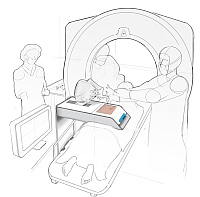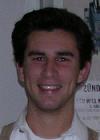Research Group: Assessment and Training of Medical Expert with Objective Standards (ATMEOS)In medical collaboration with:Dr. med. Simon Weidert, Prof. Dr. med. Ekkehard Euler; Dr. med. Ulla Stumpf; Dr. med. Florian Ringel In academic collaboration with: Dr. Matthias Weigl; Michael Pfandler; Dr. med. Dipl.-Inf. Marc Lazarovici; Prof. Roy Eagleson; Prof. Sandrine de Ribaupierre Scientific Director: Nassir Navab Contact Person(s): Patrick Wucherer |
Abstract
In highly dynamic and complex high-risk domains - such as surgery - systematic training in the relevant skills is the basis for safe and high-quality performance. Traditionally, assessment and training in surgery traditionally concentrated upon proficiency and acquisition of surgeons' technical skills. As the fundamental impact of non-technical skills - such as communication and coordination - is increasingly acknowledged for safe delivery of surgeries comprehensive training approaches are missing. The overall aim of the project is to investigate a novel learning environment for the assessment and training of both technical and non-technical skills of entire multidisciplinary operating room (OR) teams.Detailed Project Description
Specifically, we first proceed by optimally integrating a virtual reality (VR) procedural simu-lator into a simulated OR, and further advance the learning environment for multidisciplinary team train-ing. Secondly, we aim to develop robust performance metrics for objective assessment of surgeons' technical skills (e.g. instrument handling, identification of complications) and non-technical skills (e.g. situational awareness, interpersonal communication). Thirdly, we are specifically interested in errors that occur during adverse events and psychophysical stress of the surgical staff. We want to research the role of deliberate exposure to adverse events in the augmentation of error perception and mediation of error recovery strategies. Lastly, we establish and investigate professionals' skills transfer into OR-practice, respectively for technical and non-technical skills. Thus, the proposed project provides ground for further research and training in the development of surgical skills as well as the integration of such a novel learning environment into the curriculum in specialty training, student teaching, and improvement of interprofessional collaboration in surgery.Pictures
|
Videos
Publications
Sorry! No entries found for your search query.
Clinical Relevance
The goal for the modern learner is to arrive at the bedside of a real patient with proficiency already demonstrated in the requisite skills. In this process, the most expensive and scarce resource is the experienced clinical instructor. In this area, the synergy between computer-assistance and real medical instrumentation can make invaluable contributions by enabling focused and deliberate practice to further motivate the trainee. Thus, clinical education specialists need a customizable medical simulation environment to experiment with new learning models and training regimens. To our knowledge, we have designed and evaluated the first VR simulator with the capacity to control the introduction of adverse events or complication yielding a wide spectrum of highly adjustable crisis simulation scenarios. Moreover, our design is the first that combines a VR simulator with a computerized mannequin simulator in an OR crisis simulation scenario.Team
Contact Person(s)
|
Working Group
|
|
|
Location
| Ludwig-Maximilians-Universität München Chirurgische Klinik und Poliklinik - Innenstadt, AG CAS Nussbaumstr. 20 80336 München Room: C2.06 Tel.: +49 89 5160-3615 Tel.: +49 89 5160-3635 Fax: +49 89 5160-3630 |
internal project page
Please contact Patrick Wucherer for available student projects within this research project.




